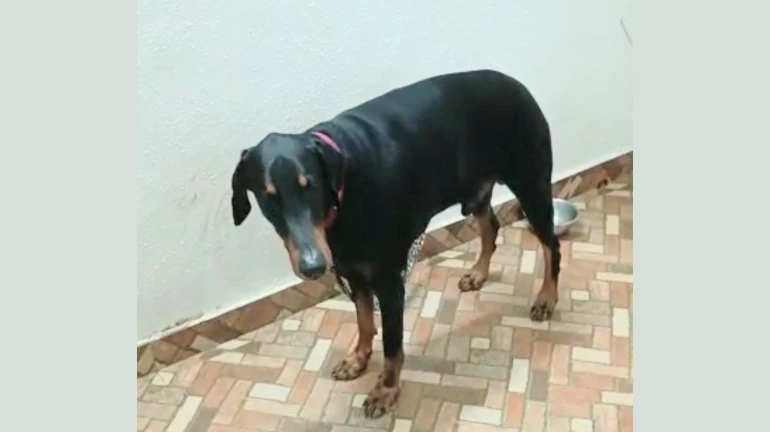
A team consisting of Dr Narendra Pardeshi (Vet surgeon) & Dr Shashank Shah, One of the Leading bariatric surgeons along with Dr Sushil Kharat, and Vet assistant Reena Haribhat achieved a feat by treating a pet dog with gall bladder infection also known as cholecystitis and cholangiohepatitis and gallbladder stones. After this life-changing laparoscopic
Pet parent Vijay Badade from Sinhagad Road, Pune panicked as the three-year-old pet dog Dobby exhibited symptoms such as abdominal pain, vomiting, and dysentery on March 28. He was immediately taken to the Small Animal Clinic for further check-ups.
Dr. Narendra Pardeshi, Renowned Veterinary Surgeon & Founder of Small Animal Clinic, said, “The dog came with complaints of unbearable abdominal pain and vomiting plus dysentery and very high liver enzyme values. His blood samples revealed that his platelet level was low at 77 thousand (1•48-4•84 lakhs). The patient had gallbladder infection also known as cholecystitis and cholangiohepatitis and gallbladder stones. In India, the prevalence of this condition is quite a lot. But diagnosis is important as mostly the condition goes unnoticed. He was given saline and an injection to improve his condition. His ultrasound was done to check his liver condition where we noticed an inflamed and over-distended gallbladder with sludge. Food and water-borne infections to the liver, vaccination issues, bacterial infections, cancer, trauma to the liver, gallbladder obstruction, blood clots, and low platelets causing bleeding are the causes behind this condition. Though his liver problem was sorted, gallbladder inflammation and distension were still present. We decided to go for the removal of the gallbladder.”
Dr Pardeshi added, “Dobby was sedated and given general anaesthesia with gas and oxygen for a safer procedure. Laparoscopic gallbladder removal also known as cholecystectomy or lap choli removes the disease of the gallbladder as it is less postoperative pain, small incisions, shorter hospital stay, and disability from walking than open gallbladder removal. 2 holes of 1 centimeter laparoscope and 3 holes of half laparoscopic incision were done for operation rather than conventional completely opening abdomen to big incision of 10-12 inch to remove the gallbladder. This technique is called minimally invasive surgery in which surgery is performed through a keyhole incision, so there is less blood loss as compared to open surgery and more accuracy as we can clearly visualize organs to operate under the vision of a direct camera.”
Dr. Shashank Shah, Leading Bariatric Surgeon said, “It is a rare and complicated surgery as laparoscopic gallbladder removal in dogs as compared to humans which is called lap choli which is very routine in human beings. The major hurdles were passing the trocar and cannula at the medial aspect of the liver and reaching the common bile duct. Ligation and haemoclip application to the common bile duct was more challenging. For safety purposes, suturing common bile ducts with vicryl suture was most difficult as one needed to suture inside the abdomen as compared to open surgery.”
Dr Narendra Pardeshi said, “Post-surgery, he recovered within 30-40 minutes after the operation. The uneventful surgery lasted for 2 hours. Within 3-4 hours, he started taking liquid food and then after 1 hour, he came back to solid food. He was discharged on the same day after the operation and postoperatively brought for injection for 3 days. Not treating him at the right time could have led to gall bladder stone, ruptured gallbladder, infection in the liver and abdomen, and death due to severe pain. After surgery, the pet owner was instructed to restrict the movement of the pet for 7 days after the operation to prevent infection from the incision site. Now the pet is doing very well and is not showing any abdominal pain and discomfort.”
“Dobby is the source of our happiness. But, he became quiet, would sit in one place, and avoided eating, running around, or playing in the house due to abdominal pain. Our world came crashing down when he came to know about Dobby’s gallbladder infection. The expertise of the team doctors ensured that Dobby was safe. I thank the doctors for saving his life. Dobby has resumed his daily routine without any difficulty and is playful just like before,” concluded the pet parent Vijay Badade.





